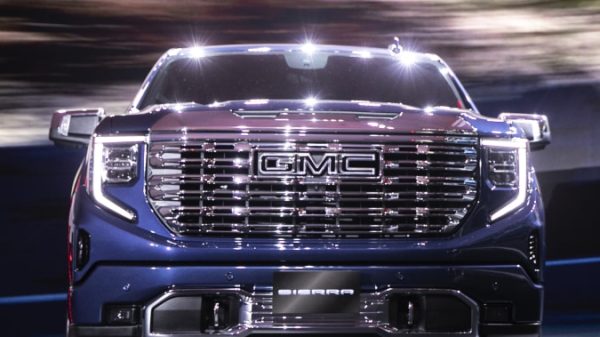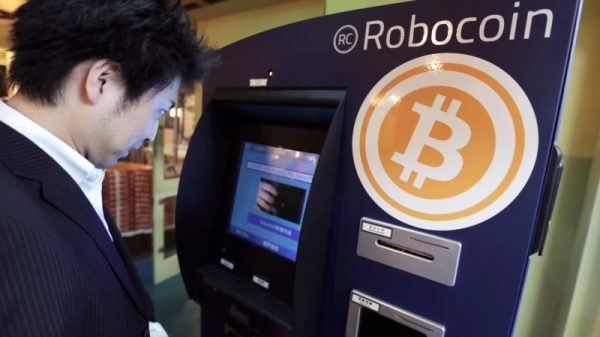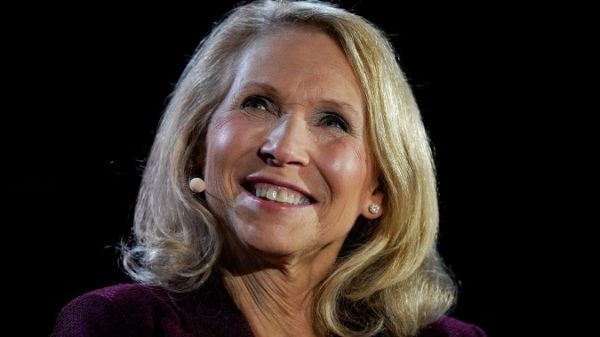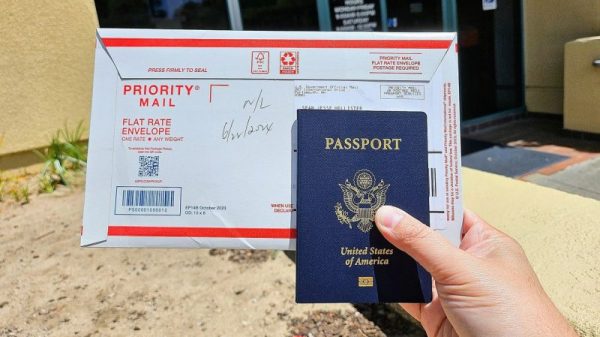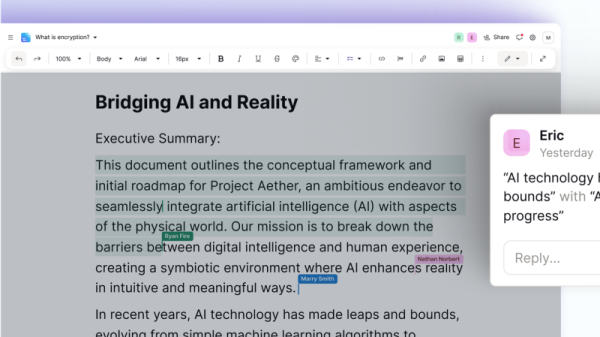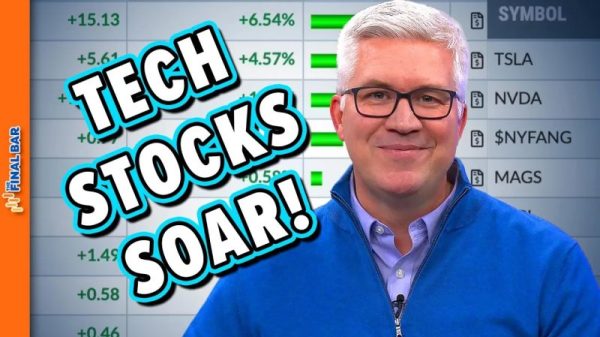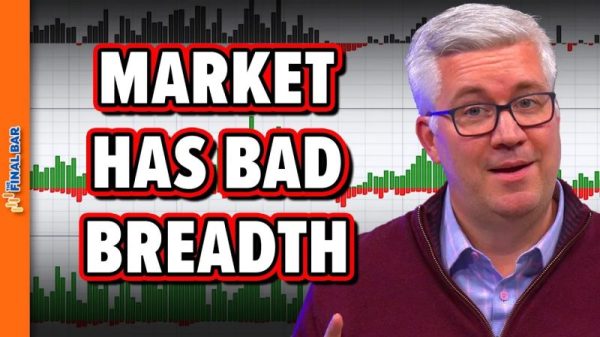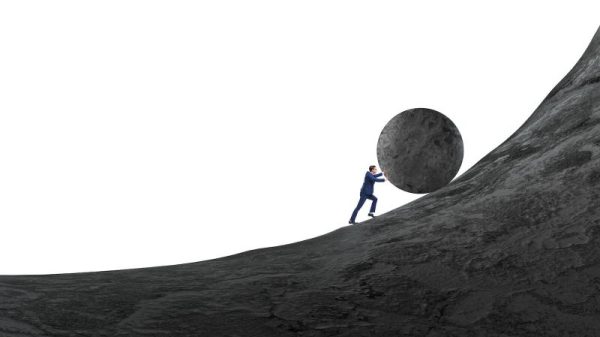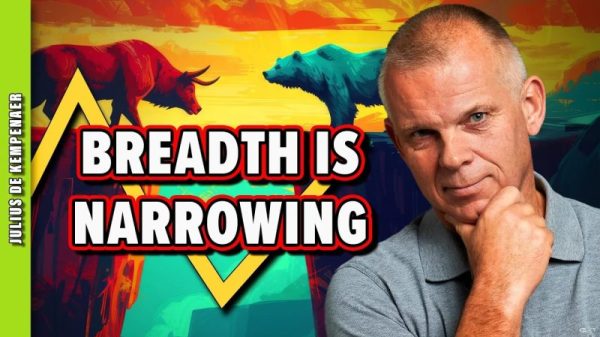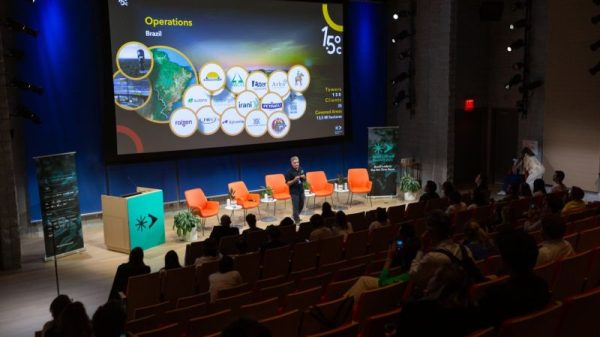Ron DeSantis’s allies were eager to regain momentum on the eve of his presidential campaign launch in May. Supporters gleefully predicted the sheer buzz from a splashy announcement — live on Twitter — would rival Donald Trump’s 2015 ride down a golden escalator. Fundraisers were upbeat as they convened at the Four Seasons Miami, some convinced Trump’s daunting lead would shrink as DeSantis finally got in the race.
That hasn’t happened.
More than seven weeks in, skepticism about the Florida governor’s 2024 bid has grown. Some people who have advised and supported DeSantis have raised private concerns about his message, and the effectiveness and insularity of his campaign operation, according to people familiar with the comments, among the more than 30 people interviewed for this story.
The doubts extend to long-friendly Fox News — where a recent headline asked, “Will DeSantis sink and fade out?” — and its owner, the conservative media magnate Rupert Murdoch, according to another person who speaks regularly with Murdoch about the presidential race. “He was excited about him at the beginning, but the more he shows himself, the less appealing he is,” said this person, who, like others, spoke on the condition of anonymity to describe private deliberations and talk more freely. Murdoch will “come back to Trump if he thinks Trump can win,” this person added. A representative for Murdoch declined to comment Saturday.
A slew of bad news for DeSantis has underscored the danger of high expectations for a rising GOP star who began the year neck-and-neck with Trump in some polling, fresh off a landslide reelection in November in Florida. Traveling the country for nearly a half a year now to raise his profile, he’s lost ground to Trump and hovers in a distant second, spooking some donors and emboldening his rivals.
“Nothing [in] the last eight weeks or so would convince anybody, holy moly, we’ve gotta pack up our tent and go home,” said Republican strategist Dave Carney, who is not working on any presidential bid and is a longtime adviser to another governor, Republican Greg Abbott of Texas. “He’s got plenty of time to recover and get back to where he was in January or February. But a lot of wasted time.”
DeSantis has expressed confidence in his position and the ground game his allies are building in early states, saying he’s campaigning for the long term. “Watch and learn,” he said in Iowa on Friday when asked how he’d diminish Trump’s lead.
For many of his donors, allies and other Republican observers, DeSantis’s struggle to make headway is a testament to Trump’s grip on the GOP base, apparently invigorated politically by two criminal indictments. Some blame negative media coverage or unrealistic ideas of how the race could shift before the competition kicks into higher gear with debates.
But others see needless stumbles and a campaign that has at times veered too far right, criticizing a risky launch event that went haywire, pointing to a widely ridiculed video on LGBTQ+ issues, and arguing that the campaign must present a more forward-looking vision and venture more frequently outside friendly, conservative echo chambers. Even before his launch, DeSantis drew complaints from some allies about his signing of a six-week abortion ban and his reference to a “territorial dispute” with Russia in Ukraine that was not a vital U.S. interest, while critics pounced on his sometimes stilted interactions with voters on the trail and inexperience in intimate early-state settings.
Some shifts are already underway: The campaign has started rolling out national policy — economic issues next, then foreign policy in August — and plans to do more mainstream media interviews around those proposals, according to a person close to the campaign. That person said the campaign was never counting on an immediate polling bump, views the debates as the next chance to shake up the race and noted that they have significant resources to deploy down the line.
On Thursday, some DeSantis campaign staff were let go, according to a campaign spokesman, who confirmed Politico’s reporting that the cuts affected fewer than 10 people involved in event planning. And this weekend, financial disclosures showed DeSantis raised a significant $20 million in the second quarter but also had a high burn rate and relied heavily on donors who have given the maximum allowed.
Allies say DeSantis’s favorability ratings have weathered relentless attacks from Trump and his allies and millions in negative advertising from Trump and see particular opportunity to seize momentum in the first-in-the-nation GOP caucus state, Iowa. A CNN poll last month found that roughly half of Republican and Republican-leaning voters preferred a candidate besides Trump.
“You could wallpaper the governor’s residence with the amount of premature political obituaries written about Ron DeSantis,” said campaign spokesman Andrew Romeo. “Challenging the establishment is never easy — and this campaign to save our nation is going to be a long, hard-fought battle to defeat Joe Biden. We are building an organization that will go the distance.”
In a private fundraiser in Washington last month, DeSantis made this case for his nomination: He said that the media and “elites” wanted him to lose, and that Trump couldn’t win a general election and that President Biden was too old, according to a person present at the event. He also talked about Florida extensively, this person said.
But one donor who recently co-hosted an event for DeSantis described hearing sentiments such as “What’s going on?” and “Does he even have a chance?” from associates. This donor said he was trying to get other rich Republicans to give to DeSantis, but most wanted to keep their powder dry after his lackluster beginning.
The history of presidential primaries includes notably late bloomers, such as Barack Obama, who didn’t start to hit his stride in the 2008 Democratic primary against heavy favorite Hillary Clinton until late in fall 2007. And the contours of 2024, including Trump’s two criminal indictments and the possibility of more, make this cycle potentially even more unpredictable. DeSantis, for his part, has amassed more resources and name recognition than any other Trump alternative in the GOP.
As DeSantis hit the fundraising circuit recently, there was still plenty of optimism — especially among the donors who gathered in Miami with “Day One” hats to kick off DeSantis’s campaign. “They said, day one, this is gonna be a long slog, we’re gonna try to win every day,” said Roy Bailey, Trump’s former national finance co-chairman now backing DeSantis. “And it’s gonna be like, in the parlance of college football, three yards and a cloud of dust,” meaning you “pound away and just gradually go down the field.”
Past races have also exposed plenty of early flame-outs — such as Republicans Scott Walker and Jeb Bush in 2016 — and DeSantis is determined not to join their ranks. But some supporters acknowledge that he has yet to establish himself as the consensus candidate to challenge Trump.
“I’ve told other people there is a lane in Iowa for somebody other than Trump,” said Brent Siegrist, one of the roughly three dozen Iowa state legislators who have endorsed DeSantis. “And everybody kind of assumed DeSantis was going to fill it and that remains to be seen.”
Back in May, DeSantis fans reveled in the unconventional kickoff that his team kept secret until the last minute: A Twitter Spaces audio chat with Elon Musk, the polarizing and increasingly conservative billionaire who acquired the social media platform last year. Well over a half-million people listened in on the evening of May 24 — to silence, strange echoes and intermittent voices due to technical difficulties.
“Now it’s quiet,” someone whispered eight minutes in. By the time DeSantis declared his candidacy — after nearly half an hour — hundreds of thousands of listeners had dropped off from what Fox News would label a “disaster.”
The next week, DeSantis flew to Iowa for a more traditional speech to a packed evangelical church. He implicitly pitched himself as more electable, more effective in office and more conservative than Trump, his onetime ally. Later, addressing reporters in an overflow room, he finally jabbed back at months of Trump criticism and insults.
“He used to say how great Florida was — hell, his whole family moved to Florida under my governorship,” DeSantis said. Watching from the side of the room with a smile was his campaign manager, Generra Peck, a close aide in a tightknit circle.
Voters who lined up to see DeSantis in Iowa, New Hampshire and South Carolina cheered his war on “woke” liberal ideas he said had infected schools and business and the media. Most of all, they called the governor a more stable alternative to Trump.
That’s part of the issue for DeSantis, argued Gunner Ramer, political director for the Republican Accountability PAC, which has been running ads against Trump in the primary. “Voters view DeSantis in relation to Trump,” he said. “The problem for DeSantis — now we’re seeing it — is that the relationship with him was very shallow.”
As DeSantis blitzed early-nominating states, some voters repeatedly brushed off the persistent suggestions he was awkward and gushed about his young kids and his wife, Casey DeSantis, who has played an outsize role on the campaign and has spoken to a more personal side of the governor at stop after stop.
Still, even attendees at DeSantis events said they have been drawn to Trump’s charisma — and the former president took every opportunity to draw a contrast, joking that his rival needed a “personality transplant.” On the trail, DeSantis can be brief with voters and terse with reporters.
“Even though he speaks strongly about what he believes, I think you’re just comparing him to a person who is much stronger in terms of stage presence,” said Bill Wimberly, who came out to see DeSantis this summer in Gilbert, S.C.
DeSantis allies marshaled more than $100 million to bolster DeSantis’s standing with a novel effort outsourcing many of the usual tasks handled by campaigns. A super PAC, Never Back Down, aired biographical ads, hired an army of door-knockers in early primary states and worked to broadcast DeSantis’s self-proclaimed “war on woke.”
“We are light-years ahead of every other political operation,” said Dave Vasquez, a Never Back Down spokesman.
The group sent out big, glossy mailers that trumpeted his victories against the “transgender agenda” and his push to strip Disney of special privileges in Florida after the company opposed legislation to restrict classroom discussions of gender identity and sexual orientation. In South Carolina, operatives joke about how much mail they have already received from Never Back Down — far more than from other candidates or groups.
“TRULY ASK YOURSELF: DO YOU RECOGNIZE YOUR COUNTRY?” asked a full-page graphic of a recent Pride flag display at the White House.
DeSantis’s campaign leaned into a similar message amid a growing GOP backlash to Pride Month. Then they shared a video — created by a Twitter user called “Proud Elephant” — that crossed a line for some Republicans, with a compilation of Trump’s past support for LGBTQ+ people and a meme-filled compilation of outraged commentary on DeSantis’s agenda and Florida laws that “literally threaten trans existence.”
The Log Cabin Republicans, a national group of gay conservatives, said DeSantis’s “extreme rhetoric … has just ventured into homophobic territory.” Even Murdoch — the media executive whose New York Post once hailed DeSantis as “DeFuture” — recoiled at the video, according to the person who speaks with him about the election.
In the spring, before DeSantis’s official launch, some donors revolted over his support for a six-week abortion ban in Florida and his comments on Ukraine.
“I thought I was a DeSantis girl all the way,” said one longtime GOP donor. “I sent off for a banner … Make America Florida. I loved it. The day it arrived in my mailbox, that was the day he said something about Ukraine and Russia being a border dispute. I put that away in the dark and I thought, I’ll never get this out again.” She said she shared her concerns over the phone with DeSantis’s wife, Casey DeSantis, who said she understood.
The donor has warmed back up to the Florida governor since then, believing he has adequately walked his Ukraine comments back. But Trump’s sustained lead in polling has made her more nervous about DeSantis’s prospects.
DeSantis, meanwhile, has continued to embrace causes that have excited the base while alienating more-centrist voters. Discussing abortion at an evangelical Christian group’s summit in Iowa on Friday, he touted the six-week abortion ban he signed, saying, “This by the way, this is an issue where I had a lot of supporters who were averse to me on this, donors saying they didn’t want to support me if I stood for life.” He said he wants to do “what’s right.”
Just before the Fourth of July, another supporter gave a blunt assessment of DeSantis’s position. In an online chat, a spokesman for Never Back Down, Steve Cortes, acknowledged that “Donald Trump is the runaway front-runner,” and said that while polls were closer in early primary states, “We are still clearly down. We’re down double digits, we have work to do.” He also suggested the DeSantis isn’t “the debater that Trump is.”
Soon, other concerns about the campaign were spilling out into public view. Erick Erickson, a conservative commentator who has criticized Trump and agrees with DeSantis on many issues, urged DeSantis to talk less about Florida — the most-used word in DeSantis’s kickoff speech, outside basic conjunctions — and more about national policy, especially on pocketbook issues.
“I would use the word ‘rudderless,’” Erickson said in an interview. He said DeSantis was the candidate his radio show callers talked the most about — but excitement had given way to disappointment with his campaign.
After he was recently critical of DeSantis on Twitter, he said, campaign staffers called to see what he was hearing — and asked if he was going to publish anything.
“It’s a campaign without a message yet. I overwhelmingly hear from callers on my radio show that we don’t care about Florida. What can you do for me?” he said.
Several people said many donors have showed new interest in Sen. Tim Scott (R-S.C.), who is polling in the single digits but got particular attention in an early July DeSantis campaign memo first reported by NBC News.
“While Tim Scott has earned a serious look at this stage, his bio is lacking the fight that our electorate is looking for in the next President,” the memo said. “We expect Tim Scott to receive appropriate scrutiny in the weeks ahead.”
Others are staying the course. Bob Grand, a lobbyist who held a fundraiser with DeSantis on Wednesday at an Indianapolis country club, said that he got good feedback and that DeSantis “worked the crowd like nobody’s business.” He spoke for about 20 minutes to more than 100 people, Grand said, reiterating his message on the “Florida blueprint.”
Bob Heckman, a veteran of GOP presidential campaigns who is unaffiliated in the primary, said he’s spoken with a couple of DeSantis donors who are “concerned that maybe he doesn’t have what it takes.”
But he also believes the real “starting gate” for the primary has yet to arrive. “Presidential campaigns tend to be made up of moments, and there’s no opportunity to have a moment until we finally get into the first debate,” he said.
Sarah Ellison contributed to this report.
Ron DeSantis’s allies were eager to regain momentum on the eve of his presidential campaign launch in May. Supporters gleefully predicted the sheer buzz from a splashy announcement — live on Twitter — would rival Donald Trump’s 2015 ride down a golden escalator. Fundraisers were upbeat as they convened at the Four Seasons Miami, some convinced Trump’s daunting lead would shrink as DeSantis finally got in the race.
That hasn’t happened.
More than seven weeks in, skepticism about the Florida governor’s 2024 bid has grown. Some people who have advised and supported DeSantis have raised private concerns about his message, and the effectiveness and insularity of his campaign operation, according to people familiar with the comments, among the more than 30 people interviewed for this story.
The doubts extend to long-friendly Fox News — where a recent headline asked, “Will DeSantis sink and fade out?” — and its owner, the conservative media magnate Rupert Murdoch, according to another person who speaks regularly with Murdoch about the presidential race. “He was excited about him at the beginning, but the more he shows himself, the less appealing he is,” said this person, who, like others, spoke on the condition of anonymity to describe private deliberations and talk more freely. Murdoch will “come back to Trump if he thinks Trump can win,” this person added. A representative for Murdoch declined to comment Saturday.
A slew of bad news for DeSantis has underscored the danger of high expectations for a rising GOP star who began the year neck-and-neck with Trump in some polling, fresh off a landslide reelection in November in Florida. Traveling the country for nearly a half a year now to raise his profile, he’s lost ground to Trump and hovers in a distant second, spooking some donors and emboldening his rivals.
“Nothing [in] the last eight weeks or so would convince anybody, holy moly, we’ve gotta pack up our tent and go home,” said Republican strategist Dave Carney, who is not working on any presidential bid and is a longtime adviser to another governor, Republican Greg Abbott of Texas. “He’s got plenty of time to recover and get back to where he was in January or February. But a lot of wasted time.”
DeSantis has expressed confidence in his position and the ground game his allies are building in early states, saying he’s campaigning for the long term. “Watch and learn,” he said in Iowa on Friday when asked how he’d diminish Trump’s lead.
For many of his donors, allies and other Republican observers, DeSantis’s struggle to make headway is a testament to Trump’s grip on the GOP base, apparently invigorated politically by two criminal indictments. Some blame negative media coverage or unrealistic ideas of how the race could shift before the competition kicks into higher gear with debates.
But others see needless stumbles and a campaign that has at times veered too far right, criticizing a risky launch event that went haywire, pointing to a widely ridiculed video on LGBTQ+ issues, and arguing that the campaign must present a more forward-looking vision and venture more frequently outside friendly, conservative echo chambers. Even before his launch, DeSantis drew complaints from some allies about his signing of a six-week abortion ban and his reference to a “territorial dispute” with Russia in Ukraine that was not a vital U.S. interest, while critics pounced on his sometimes stilted interactions with voters on the trail and inexperience in intimate early-state settings.
Some shifts are already underway: The campaign has started rolling out national policy — economic issues next, then foreign policy in August — and plans to do more mainstream media interviews around those proposals, according to a person close to the campaign. That person said the campaign was never counting on an immediate polling bump, views the debates as the next chance to shake up the race and noted that they have significant resources to deploy down the line.
On Thursday, some DeSantis campaign staff were let go, according to a campaign spokesman, who confirmed Politico’s reporting that the cuts affected fewer than 10 people involved in event planning. And this weekend, financial disclosures showed DeSantis raised a significant $20 million in the second quarter but also had a high burn rate and relied heavily on donors who have given the maximum allowed.
Allies say DeSantis’s favorability ratings have weathered relentless attacks from Trump and his allies and millions in negative advertising from Trump and see particular opportunity to seize momentum in the first-in-the-nation GOP caucus state, Iowa. A CNN poll last month found that roughly half of Republican and Republican-leaning voters preferred a candidate besides Trump.
“You could wallpaper the governor’s residence with the amount of premature political obituaries written about Ron DeSantis,” said campaign spokesman Andrew Romeo. “Challenging the establishment is never easy — and this campaign to save our nation is going to be a long, hard-fought battle to defeat Joe Biden. We are building an organization that will go the distance.”
In a private fundraiser in Washington last month, DeSantis made this case for his nomination: He said that the media and “elites” wanted him to lose, and that Trump couldn’t win a general election and that President Biden was too old, according to a person present at the event. He also talked about Florida extensively, this person said.
But one donor who recently co-hosted an event for DeSantis described hearing sentiments such as “What’s going on?” and “Does he even have a chance?” from associates. This donor said he was trying to get other rich Republicans to give to DeSantis, but most wanted to keep their powder dry after his lackluster beginning.
The history of presidential primaries includes notably late bloomers, such as Barack Obama, who didn’t start to hit his stride in the 2008 Democratic primary against heavy favorite Hillary Clinton until late in fall 2007. And the contours of 2024, including Trump’s two criminal indictments and the possibility of more, make this cycle potentially even more unpredictable. DeSantis, for his part, has amassed more resources and name recognition than any other Trump alternative in the GOP.
As DeSantis hit the fundraising circuit recently, there was still plenty of optimism — especially among the donors who gathered in Miami with “Day One” hats to kick off DeSantis’s campaign. “They said, day one, this is gonna be a long slog, we’re gonna try to win every day,” said Roy Bailey, Trump’s former national finance co-chairman now backing DeSantis. “And it’s gonna be like, in the parlance of college football, three yards and a cloud of dust,” meaning you “pound away and just gradually go down the field.”
Past races have also exposed plenty of early flame-outs — such as Republicans Scott Walker and Jeb Bush in 2016 — and DeSantis is determined not to join their ranks. But some supporters acknowledge that he has yet to establish himself as the consensus candidate to challenge Trump.
“I’ve told other people there is a lane in Iowa for somebody other than Trump,” said Brent Siegrist, one of the roughly three dozen Iowa state legislators who have endorsed DeSantis. “And everybody kind of assumed DeSantis was going to fill it and that remains to be seen.”
Back in May, DeSantis fans reveled in the unconventional kickoff that his team kept secret until the last minute: A Twitter Spaces audio chat with Elon Musk, the polarizing and increasingly conservative billionaire who acquired the social media platform last year. Well over a half-million people listened in on the evening of May 24 — to silence, strange echoes and intermittent voices due to technical difficulties.
“Now it’s quiet,” someone whispered eight minutes in. By the time DeSantis declared his candidacy — after nearly half an hour — hundreds of thousands of listeners had dropped off from what Fox News would label a “disaster.”
The next week, DeSantis flew to Iowa for a more traditional speech to a packed evangelical church. He implicitly pitched himself as more electable, more effective in office and more conservative than Trump, his onetime ally. Later, addressing reporters in an overflow room, he finally jabbed back at months of Trump criticism and insults.
“He used to say how great Florida was — hell, his whole family moved to Florida under my governorship,” DeSantis said. Watching from the side of the room with a smile was his campaign manager, Generra Peck, a close aide in a tightknit circle.
Voters who lined up to see DeSantis in Iowa, New Hampshire and South Carolina cheered his war on “woke” liberal ideas he said had infected schools and business and the media. Most of all, they called the governor a more stable alternative to Trump.
That’s part of the issue for DeSantis, argued Gunner Ramer, political director for the Republican Accountability PAC, which has been running ads against Trump in the primary. “Voters view DeSantis in relation to Trump,” he said. “The problem for DeSantis — now we’re seeing it — is that the relationship with him was very shallow.”
As DeSantis blitzed early-nominating states, some voters repeatedly brushed off the persistent suggestions he was awkward and gushed about his young kids and his wife, Casey DeSantis, who has played an outsize role on the campaign and has spoken to a more personal side of the governor at stop after stop.
Still, even attendees at DeSantis events said they have been drawn to Trump’s charisma — and the former president took every opportunity to draw a contrast, joking that his rival needed a “personality transplant.” On the trail, DeSantis can be brief with voters and terse with reporters.
“Even though he speaks strongly about what he believes, I think you’re just comparing him to a person who is much stronger in terms of stage presence,” said Bill Wimberly, who came out to see DeSantis this summer in Gilbert, S.C.
DeSantis allies marshaled more than $100 million to bolster DeSantis’s standing with a novel effort outsourcing many of the usual tasks handled by campaigns. A super PAC, Never Back Down, aired biographical ads, hired an army of door-knockers in early primary states and worked to broadcast DeSantis’s self-proclaimed “war on woke.”
“We are light-years ahead of every other political operation,” said Dave Vasquez, a Never Back Down spokesman.
The group sent out big, glossy mailers that trumpeted his victories against the “transgender agenda” and his push to strip Disney of special privileges in Florida after the company opposed legislation to restrict classroom discussions of gender identity and sexual orientation. In South Carolina, operatives joke about how much mail they have already received from Never Back Down — far more than from other candidates or groups.
“TRULY ASK YOURSELF: DO YOU RECOGNIZE YOUR COUNTRY?” asked a full-page graphic of a recent Pride flag display at the White House.
DeSantis’s campaign leaned into a similar message amid a growing GOP backlash to Pride Month. Then they shared a video — created by a Twitter user called “Proud Elephant” — that crossed a line for some Republicans, with a compilation of Trump’s past support for LGBTQ+ people and a meme-filled compilation of outraged commentary on DeSantis’s agenda and Florida laws that “literally threaten trans existence.”
The Log Cabin Republicans, a national group of gay conservatives, said DeSantis’s “extreme rhetoric … has just ventured into homophobic territory.” Even Murdoch — the media executive whose New York Post once hailed DeSantis as “DeFuture” — recoiled at the video, according to the person who speaks with him about the election.
In the spring, before DeSantis’s official launch, some donors revolted over his support for a six-week abortion ban in Florida and his comments on Ukraine.
“I thought I was a DeSantis girl all the way,” said one longtime GOP donor. “I sent off for a banner … Make America Florida. I loved it. The day it arrived in my mailbox, that was the day he said something about Ukraine and Russia being a border dispute. I put that away in the dark and I thought, I’ll never get this out again.” She said she shared her concerns over the phone with DeSantis’s wife, Casey DeSantis, who said she understood.
The donor has warmed back up to the Florida governor since then, believing he has adequately walked his Ukraine comments back. But Trump’s sustained lead in polling has made her more nervous about DeSantis’s prospects.
DeSantis, meanwhile, has continued to embrace causes that have excited the base while alienating more-centrist voters. Discussing abortion at an evangelical Christian group’s summit in Iowa on Friday, he touted the six-week abortion ban he signed, saying, “This by the way, this is an issue where I had a lot of supporters who were averse to me on this, donors saying they didn’t want to support me if I stood for life.” He said he wants to do “what’s right.”
Just before the Fourth of July, another supporter gave a blunt assessment of DeSantis’s position. In an online chat, a spokesman for Never Back Down, Steve Cortes, acknowledged that “Donald Trump is the runaway front-runner,” and said that while polls were closer in early primary states, “We are still clearly down. We’re down double digits, we have work to do.” He also suggested the DeSantis isn’t “the debater that Trump is.”
Soon, other concerns about the campaign were spilling out into public view. Erick Erickson, a conservative commentator who has criticized Trump and agrees with DeSantis on many issues, urged DeSantis to talk less about Florida — the most-used word in DeSantis’s kickoff speech, outside basic conjunctions — and more about national policy, especially on pocketbook issues.
“I would use the word ‘rudderless,’” Erickson said in an interview. He said DeSantis was the candidate his radio show callers talked the most about — but excitement had given way to disappointment with his campaign.
After he was recently critical of DeSantis on Twitter, he said, campaign staffers called to see what he was hearing — and asked if he was going to publish anything.
“It’s a campaign without a message yet. I overwhelmingly hear from callers on my radio show that we don’t care about Florida. What can you do for me?” he said.
Several people said many donors have showed new interest in Sen. Tim Scott (R-S.C.), who is polling in the single digits but got particular attention in an early July DeSantis campaign memo first reported by NBC News.
“While Tim Scott has earned a serious look at this stage, his bio is lacking the fight that our electorate is looking for in the next President,” the memo said. “We expect Tim Scott to receive appropriate scrutiny in the weeks ahead.”
Others are staying the course. Bob Grand, a lobbyist who held a fundraiser with DeSantis on Wednesday at an Indianapolis country club, said that he got good feedback and that DeSantis “worked the crowd like nobody’s business.” He spoke for about 20 minutes to more than 100 people, Grand said, reiterating his message on the “Florida blueprint.”
Bob Heckman, a veteran of GOP presidential campaigns who is unaffiliated in the primary, said he’s spoken with a couple of DeSantis donors who are “concerned that maybe he doesn’t have what it takes.”
But he also believes the real “starting gate” for the primary has yet to arrive. “Presidential campaigns tend to be made up of moments, and there’s no opportunity to have a moment until we finally get into the first debate,” he said.
Sarah Ellison contributed to this report.


